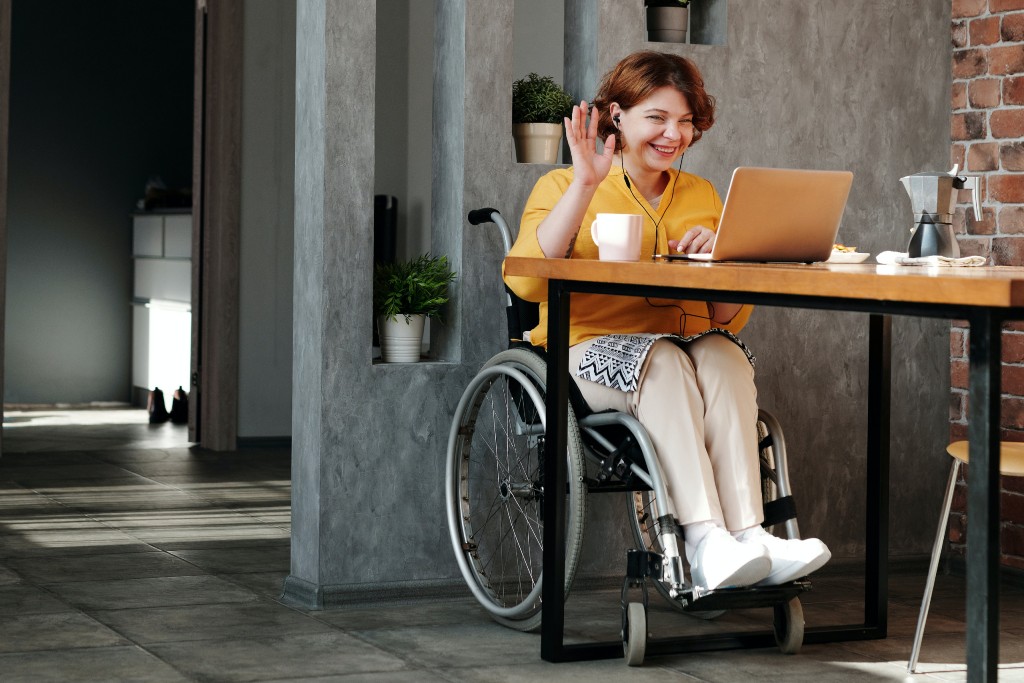Global initiatives to achieve human rights, sustainable development and peace and security for all must focus particular attention on disability inclusion to be realised. That no one be left behind is essential to fulfilling the promise of the 2030 Agenda for Sustainable Development. The International Day of Persons with Disabilities is an opportunity to reflect on work that has been done and must continue to be done to ensure a better future for all.
One way The Adecco Group is working to this goal is through the ICRC Career Development Programme (CDP) partnership with the Adecco Group Foundation, which was launched in 2019. The partnership between the Adecco Group Foundation and the International Committee of the Red Cross (ICRC) supports people with disabilities in achieving their full potential in society by providing career training, enhancing employer and governmental awareness, increasing access to jobs to enable a more inclusive workplace, and providing self-employment support.
Employment readiness is key
“‘Employment-readiness is important because it’s an essential part of achieving a full, self-determined life,” says ICRC Inclusion Advisor, Abdulsalam Yahya Alkibsi. “It helps people be successful and feel fulfilled. Being prepared by thinking about your desires and exploring your skills and options is a great way to find the right type of employment. And employment helps people with disabilities be more engaged and integrated with society and allows them to be more independent.”
Abdulsalam is a physiotherapist with many years experience working with people with disabilities. He serves one of the most vulnerable groups of people in his country and helps them to improve their lives.
“When I heard of the Career Development Programme, from the ICRC, I saw it as a great opportunity to continue my work integrating people with disabilities into society,” he said.
He is part of a team of ICRC Inclusion Advisors who are passionate and dedicated professionals who are delivering training and offering inspirational guidance to the participants of the CDP. They blend the CDP’s content and approach with their own experience and know-how to support people with disabilities living in developing countries, fragile states, and conflict zones.
“People with disabilities need skills and training that not only serve them well, but also take into consideration and respect their disabilities. The CDP addresses this through tailored training that tackles challenges and unearths opportunities. In our workshops, we utilize SMART goals to help participants reach their objectives and train skills that are essential for getting and keeping meaningful employment, such as CV preparation, successful interviewing, and networking,” Abdulsalam said.
Disability inclusion is an important, necessary service
As a person with a physical disability herself, Haya Rawi began working in the humanitarian field more than six years ago, focusing on disability inclusion. In 2019, she began training to become an Inclusion Advisor for the CDP.
“I jumped at the chance,” she said. “From day one, I believed in this programme because it gives people with disabilities the right skills to improve their employment capabilities and get themselves employed. This is an important and necessary service.”
Employment-readiness, she says, is like the old proverb: ‘Give a man a fish, and you feed him for a day. Teach a man to fish, and you feed him for a lifetime’. By improving the employment skills of people with disabilities, she believes, we are helping them in accessing job opportunities and earning an income that will allow them to live independently and achieve their full potential in society.
“The CDP focuses on ensuring that people with disabilities are included in society and gaining meaningful employment,” Haya said. “One of the ways we do this is through helping them improve skills such as successful networking, writing a captivating CV, and excelling at job interviews. These are specific skills which our programme participants are asking for help with and it’s great to know that we are meeting their needs so head-on. While there are certainly difficulties with society not providing enough job opportunities for people with disabilities, it is also the responsibility of the person to improve their own skills and be employment-ready.”
Addressing the needs of underserved communities
The ICRC CDP is an integral part of the ICRC’s wider Physical Rehabilitation Programme (PRP) and provides economic security for people with disabilities in PRP-supported countries, including developing countries, fragile states, and conflict zones.
The ICRC CDP is a result of the Adecco Group Foundation functioning as a Social Innovation Lab– identifying underserved populations and the challenges that keep them out of work, co-creating solutions to meet these needs, and then accelerating the prototypes into viable products or programmes to take forward in partnership.
Cynthia Hansen, Managing Director of the Adecco Group Foundation, says the initiative has paid off.
“Through this partnership, the Adecco Group Foundation is able to leverage its career transition and employability expertise, alongside the reach and credibility of the ICRC, to improve access to the labour market for people with disabilities in some of the most difficult circumstances around the world,” said Hansen.



